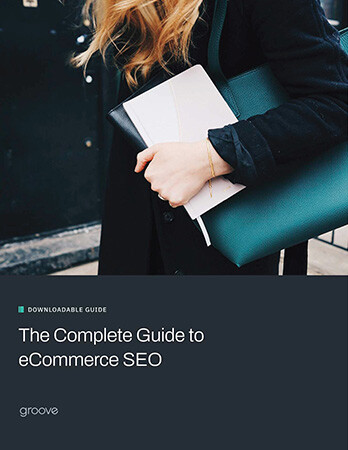Effective Search Engine Optimization (SEO) practices are vital for getting your products in front of your target audience. Your SEO strategy will be a constant work in progress, as the tactics that move pages to the top of search engine results are always changing.
Here, we'll explore some of the current eCommerce SEO best practices for getting your site in front of the people who matter most.
Keyword Research
While eCommerce SEO has changed in many ways over the years, keywords are still king. Keeping up with relevant keywords by using a tool like Ahrefs, SEMrush, or Google Keyword Planner is key to understanding what your target market is searching for.
While short keywords can work well, you'll also want to include long-tail keywords. These specific, longer phrases closely match what your target market is searching for when your eCommerce store could provide them with a solution.
On-Page SEO for eCommerce
With fly-by-night eCommerce stores popping up across the internet, using on-page SEO can help search engines realize that your business is the real deal.
Use these eCommerce SEO best practices to make sure your store gets pushed toward the top of the results page:
Title tags and meta descriptions:
Put your keyword research to good use by including primary keywords in both the title and the meta descriptions of your site. Keep it short yet compelling—your target audience should be able to get the gist of what you offer with a quick glance at your meta description.
Header tags:
Organizing your content using headers (H1, H2, H3, etc.) increases readability and provides a structure for your content. Be sure to use relevant keywords in your headings (Header tags example here).
Product descriptions:
Forget about writing generic product descriptions—you'll need to craft a unique, detailed, accurate description for each product, integrating keywords naturally as often as possible.
Image alt text:
Used to provide descriptions for people who are visually impaired or not using a screen, alternative text (a text description of each image in your content) provides an important opportunity to utilize keywords.
URL structure:
Keep your URLs as simple and clean as possible. The fewer words, the better.
Technical SEO
Keyword integration isn't the only thing that matters when it comes to eCommerce SEO. Ensuring that your site is user-friendly and running properly matters. If your site is slow, or images don't load, Google may push your site down in the rankings in favor of sites that are more user-friendly.

A few tips to boost the technical SEO of your site:
Increase site speed
Optimize images to decrease loading times, and leverage browser caching to speed up the experience of your potential customer.
User experience:
Your site should offer easy, clear navigation that allows your visitors to seamlessly transfer from one page to another.
Consider all devices:
Making sure that your eCommerce site works just as well on a phone as it does on a tablet or desktop is key for boosting your rankings.
Secure your site:
One of Google's key ranking factors is whether your site uses SSL certificates to secure consumer information.
Inbound Links
Earning backlinks is key when it comes to boosting your site's organic traffic. Guest blogging, reaching out to other eCommerce brands for partnerships, and working with influences who can authentically promote your products and content can boost your eCommerce SEO rankings.
Continuous Optimization of SEO for eCommerce Stores
Like we said, eCommerce SEO is an ongoing battle that requires regular attention. Testing different elements of your site through A/B testing (such as trying out different layouts, descriptions, titles, and headings) can help you discover what works best for your target market.
You'll also want to stay on top of the latest trends in SEO to maintain and improve your rankings. Working with a company that specializes in SEO can help you focus on your business while someone else handles the process of updating and optimizing your site every few months.
Groove Commerce: Here to Help You Use SEO to Your Advantage
At Groove Commerce, SEO is one of the things we do best. We're excited to get to know you and learn more about your company so that we can maximize your site's SEO, allowing you to get connected with your target market.
Reach out to our eCommerce SEO Agency today to set up a consultation and learn more about what we have to offer.

eBook
Download The .PDF Now:
The Complete Guide to eCommerce SEO
Explore tags:
About the author
Subscribe to the Groove Newsletter
Get the latest updates and insights straight to your inbox







